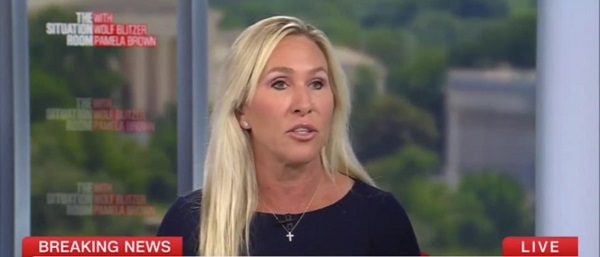Censorship Industrial Complex
JK Rowling dares Scottish police to arrest her over new ‘hate crime’ law threatening free speech

From LifeSiteNews
‘If what I’ve written here qualifies as an offence under the terms of the new act, I look forward to being arrested when I return to the birthplace of the Scottish Enlightenment,’ the ‘Harry Potter’ creator said.
Harry Potter creator J.K. Rowling is striking a defiant tone in the face of a new Scottish law that many fear will effectively criminalize free speech on subjects such as biological sex and “gender identity.”
The Hate Crime and Public Order (Scotland) Act, passed in 2021 but only now taking effect, consolidates various preexisting “hate crime” statutes while also creating a new offense, “threatening or abusive behaviour which is intended to stir up hatred” on the basis of age, disability, religion, sexual orientation, transgender identity, or variations in sex characteristics.
As covered by The Guardian and The Scotsman, various individuals and groups have raised objections to the law, including MP Joanna Cherry, who predicts it “will be weaponized by trans rights activists to try to silence, and worse still criminalize, women who do not share their beliefs”; said the Scottish Family Party, who says it will mean the “death” of free speech; and the Association of Scottish Police Superintendents and Scottish Police Federation, who fear it will overtax police forces inadequately trained to handle the influx of new offenses.
Scotland First Minister Humza Yousaf, who championed the law, insists that abuse will be prevented by a “very high threshold” for prosecuting cases and protects freedom of expression in a variety of ways, including a “reasonableness” defense. Ex-Tory MSP Adam Tomkins claims that simply “asserting that sex is a biological fact or that it is not changed just by virtue of the gender by which someone chooses to identify is not and never can be a hate crime under this legislation.”
Such assurances hit a snag, however, when calls to prosecute Rowling under the law prompted Scotland’s Community Safety Minister Siobhian Brown to walk back her initial assurances that “misgendering” would “not at all” violate the law, The Telegraph reported. “It could be reported and it could be investigated,” she said, “whether or not the police would think it was criminal is up to Police Scotland for that.”
On Monday, Rowling shared a lengthy Twitter/X thread of examples of “trans women” (i.e., men) and pro-LGBT activists she suggested were now a “protected category” despite their violent, abusive acts and/or hateful behavior, using the hashtag #ArrestMe to effectively dare the authorities to persecute her.
“The new legislation is wide open to abuse by activists who wish to silence those of us speaking out about the dangers of eliminating women’s and girls’ single-sex spaces, the nonsense made of crime data if violent and sexual assaults committed by men are recorded as female crimes, the grotesque unfairness of allowing males to compete in female sports, the injustice of women’s jobs, honours and opportunities being taken by trans-identified men, and the reality and immutability of biological sex,” she wrote. “For several years now, Scottish women have been pressured by their government and members of the police force to deny the evidence of their eyes and ears, repudiate biological facts and embrace a neo-religious concept of gender that is unprovable and untestable.”
“I’m currently out of the country, but if what I’ve written here qualifies as an offence under the terms of the new act, I look forward to being arrested when I return to the birthplace of the Scottish Enlightenment,” Rowling added.
Scotland's Hate Crime Act comes into effect today. Women gain no additional protections, of course, but well-known trans activist Beth Douglas, darling of prominent Scottish politicians, falls within a protected category. Phew! 1/11 pic.twitter.com/gCKGwdjr5m
— J.K. Rowling (@jk_rowling) April 1, 2024
Fragile flower Katie Dolatowski, 6'5", was rightly sent to a women's prison in Scotland after conviction. This ensured she was protected from violent, predatory men (unlike the 10-year-old girl Katie sexually assaulted in a women's public bathroom.) 3/11 pic.twitter.com/13J5XfRo3a
— J.K. Rowling (@jk_rowling) April 1, 2024
Scottish woman and butcher Amy George abducted an 11-year-old girl while dressed in female clothing. No idea why this was mentioned in court – of course she was wearing women’s clothing, she's a woman! Amy took the girl home and sexually abused her over a 27-hour period. 5/11 pic.twitter.com/xy3DmnqZrc
— J.K. Rowling (@jk_rowling) April 1, 2024
Mridul Wadhwa, head of a Scottish rape crisis centre, says, ‘sexual violence happens to bigoted people as well.’ She has no gender recognition certificate, but was still appointed to a job advertised for women only. Time to be ‘challenged on your prejudices’, rape victims! 7/11 pic.twitter.com/YfxUhbh6cw
— J.K. Rowling (@jk_rowling) April 1, 2024
Katie Neeves has been appointed as the UN Women UK delegate. She switched from straight man to lesbian at the age of 48 and, in a leaked 2022 webinar, described how she used to enjoy stealing and wearing her sister’s underwear. A truly relatable representative! 9/11 pic.twitter.com/VKzF7IuJTU
— J.K. Rowling (@jk_rowling) April 1, 2024
🎉🌼🌸April Fools! 🌸🌼🎉
Only kidding. Obviously, the people mentioned in the above tweets aren't women at all, but men, every last one of them.
In passing the Scottish Hate Crime Act, Scottish lawmakers seem to have placed higher value on the feelings of men performing their…
— J.K. Rowling (@jk_rowling) April 1, 2024
Rowling, whose Potter novels are the best-selling book series in the world, has long been known as a doctrinaire liberal on most issues, in 2007 going so far as to retroactively add a same-sex relationship to the backstory of Harry’s mentor Albus Dumbledore, despite the character’s sexual attraction not being referenced in the books themselves or their film adaptations (until briefly being alluded to in the third film of the Fantastic Beasts spinoff series).
Even so, Rowling has been deemed a bigot by pro-LGBT activists for refusing to go along with the notions that gender is a social construct that may be changed at will, or that life-altering surgical or chemical “transition” procedures are appropriate for confused minors. In recent years, despite intense cultural pressure, she has only grown bolder in opposing the transgender lobby’s detrimental impacts on children as well as actual women.
Alberta
Alberta bill would protect freedom of expression for doctors, nurses, other professionals

From LifeSiteNews
‘Peterson’s law,’ named for Canadian psychologist Jordan Peterson, was introduced by Alberta Premier Danielle Smith.
Alberta’s Conservative government introduced a new law that will set “clear expectations” for professional regulatory bodies to respect freedom of speech on social media and online for doctors, nurses, engineers, and other professionals.
The new law, named “Peterson’s law” after Canadian psychologist Jordan Peterson, who was canceled by his regulatory body, was introduced Thursday by Alberta Premier Danielle Smith.
“Professionals should never fear losing their license or career because of a social media post, an interview, or a personal opinion expressed on their own time,” Smith said in a press release sent to media and LifeSiteNews.
“Alberta’s government is restoring fairness and neutrality so regulators focus on competence and ethics, not policing beliefs. Every Albertan has the right to speak freely without ideological enforcement or intimidation, and this legislation makes that protection real.”
The law, known as Bill 13, the Regulated Professions Neutrality Act, will “set clear expectations for professional regulatory bodies to ensure professionals’ right to free expression is protected.”
According to the government, the new law will “Limit professional regulatory bodies from disciplining professionals for expressive off-duty conduct, except in specific circumstances such as threats of physical violence or a criminal conviction.”
It will also restrict mandatory training “unrelated to competence or ethics, such as diversity, equity, and inclusion training.”
Bill 13, once it becomes law, which is all but guaranteed as Smith’s United Conservative Party (UCP) holds a majority, will also “create principles of neutrality that prohibit professional regulatory bodies from assigning value, blame or different treatment to individuals based on personally held views or political beliefs.”
As reported by LifeSiteNews, Peterson has been embattled with the College of Psychologists of Ontario (CPO) after it mandated he undergo social media “training” to keep his license following posts he made on X, formerly Twitter, criticizing Trudeau and LGBT activists.
He recently noted how the CPO offered him a deal to “be bought,” in which the legal fees owed to them after losing his court challenge could be waived but only if he agreed to quit his job as a psychologist.
Early this year, LifeSiteNews reported that the CPO had selected Peterson’s “re-education coach” for having publicly opposed the LGBT agenda.
The Alberta government directly referenced Peterson’s (who is from Alberta originally) plight with the CPO, noting “the disciplinary proceedings against Dr. Jordan Peterson by the College of Psychologists of Ontario, demonstrate how regulatory bodies can extend their reach into personal expression rather than professional competence.”
“Similar cases involving nurses, engineers and other professionals revealed a growing pattern: individuals facing investigations, penalties or compulsory ideological training for off-duty expressive conduct. These incidents became a catalyst, confirming the need for clear legislative boundaries that protect free expression while preserving professional standards.”
Alberta Minister of Justice and Attorney General Mickey Amery said regarding Bill 13 that the new law makes that protection of professionals “real and holds professional regulatory bodies to a clear standard.”
Last year, Peterson formally announced his departure from Canada in favor of moving to the United States, saying his birth nation has become a “totalitarian hell hole.”
Censorship Industrial Complex
Move over Soviet Russia: UK Police Make 10,000 Arrests Over “Offensive” Online Speech

In a nation where 90 percent of crimes go unsolved, the real emergency seems to be someone being offensive online.
|
|
-

 Daily Caller2 days ago
Daily Caller2 days agoTrump Gives Zelenskyy Until Thanksgiving To Agree On Peace Deal, With U.S. Weapons And Intel On The Line
-

 Daily Caller2 days ago
Daily Caller2 days agoBari Weiss Reportedly Planning To Blow Up Legacy Media Giant
-

 COVID-192 days ago
COVID-192 days agoFreedom Convoy protestor Evan Blackman convicted at retrial even after original trial judge deemed him a “peacemaker”
-

 Business1 day ago
Business1 day agoI Was Hired To Root Out Bias At NIH. The Nation’s Health Research Agency Is Still Sick
-

 Carbon Tax15 hours ago
Carbon Tax15 hours agoCarney fails to undo Trudeau’s devastating energy policies
-

 Health12 hours ago
Health12 hours agoTens of thousands are dying on waiting lists following decades of media reluctance to debate healthcare
-

 Daily Caller2 days ago
Daily Caller2 days agoMTG Says She’s Resigning From Office
-

 International21 hours ago
International21 hours agoCanada’s lost decade in foreign policy





